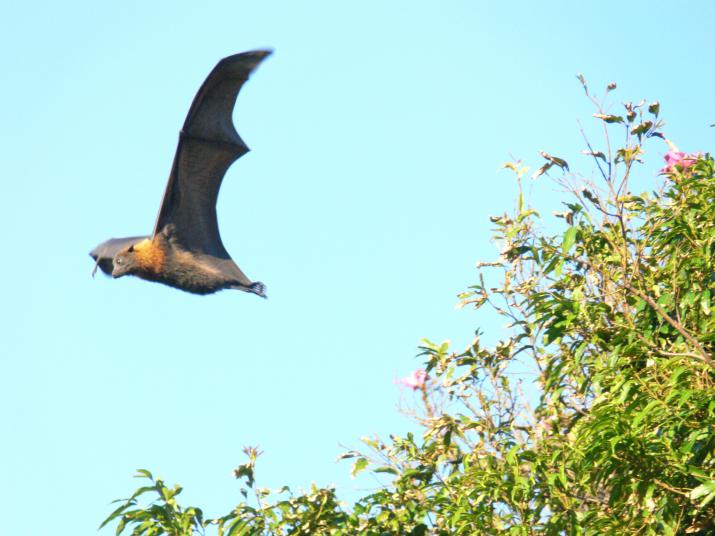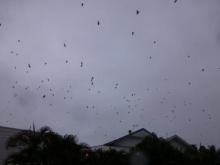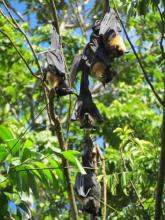
ialeUK organised a workshop for postgraduates in Reading this June. The 2-day workshop provided an opportunity for early-career researchers to explore different techniques for interacting with stakeholders, and why and how their involvement can improve the impact of landscape reserarch on planning and policy. Two participants give their view of the workshop.
If you have ideas for the next postgraduate workshop, contact Anja Liske students [at] iale [dot] org [dot] uk
Sara Iversen
Postgraduate Researcher, Centre for Wildlife Conservation & National School of Forestry, University of Cumbria
Stakeholder analysis and participatory methods - the topic of this year’s ialeUK Postgraduate Workshop - was held in June at Reading University. I had signed up as a student member of ialeUK a few months earlier and was delighted to see this pay off so soon with the invitation to the workshop. The invitation dropped into my inbox with perfect timing, as I had been trying for a few months to figure out methods and a way forward for tackling the stakeholder data collection and analysis I was going to carry out for my PhD project.
My PhD project has proven to be challenging in many ways, particularly as I am new to both landscape ecology and stakeholder engagement. Added to that, I am finding myself at a small university with limited resources for gaining experience and training in this field. Hence the reason I signed up as a member ialeUK. Workshops like this are such a valuable resource, both in terms of gaining new knowledge but also for networking and making contact with people who work within a similar subject.
The workshop was held over 2 days with a great lineup of speakers and was well attended and hosted brilliantly. Often during workshops and seminars the programme can sometimes stray a little away from the topic, but all speakers during this workshop provided insights into participatory methods for stakeholder analysis. All had a slightly different angle and framework too. A good combination of presentation and group workshops were provided, giving the participants the opportunity to try out and reflect on the ideas presented. Anja Liski, student representative for ialeUK and Marc Metzger, both from the University of Edinburgh, opened up the workshop and gave a great introduction into stakeholder engagement and participatory research. This was then followed over the 2 days by the introduction of two assessment toolkits. The first toolkit was titled ‘Talking About Our place’ – a toolkit developed by Countryscape for Scottish Natural Heritage to support community engagement with the landscape. Sarah Ivory from UNEP/WCMC presented the second toolkit and introduced TESSA – a toolkit for site-based ecosystem services assessment. Sarah spoke in particular about a new module which is being incorporated into the TESSA toolkit. This module focuses on cultural ecosystem services and provides a framework and methods for how to make a site-based assessment of these. Beside the two toolkits introduced, Matt Smith from JNCC presented the JNCC Stakeholder Engagement Handbook, which provides best practice guidelines for stakeholder engagement in research projects.
For anyone considering embarking on research involving stakeholders this workshop provided insight, guidance and plenty of advice from people with significant experience within this field and I personally went away with a much clearer idea about how to progress in my project.
The workshop was held in a very friendly and open manner, something many participants commented on and thoroughly enjoyed. Plenty of opportunity was given to chat to each other, compare ideas and I think it can be safely said that most went away with not only new knowledge and ideas, provided both by presenters and participants, but also a new network of people working within the same areas as themselves. I understand that ialeUK arrange these workshops on a yearly basis, as well as conferences. I personally will be looking forward to hopefully attending many more of these in the future.
Zakiya AL-Afifi
PhD student, Environment Department, University of York
My research is based on ecosystem services of mangroves and their contribution to the wellbeing of the Omani community. Joining the ialeUK workshop provided a great opportunity for me to identify the different methods and tools of stakeholders’ engagement in the context of the flow of services provided by an ecosystem.
The workshop assisted me in more in-depth understanding of the stakeholders involved in my research. There was an emphasis on the role of stakeholders in research and how they can support decision-making and sustainable managements of ecosystem services. Participating in the workshop prior to a pilot field study for my research was a great guide to identify my stakeholders, categorising them and understanding more about influence. Moreover, the workshop helped me to visualise the analysis of my stakeholders and the selection of certain groups to be part of the process of my research engagement based on the aim, objectives and the research timeframe. The workshop also highlighted the issue of potential conflicts between stakeholders with different visions and interests.
The workshop also provided an opportunity to identify different toolkits, guidelines and methods used by researchers for stakeholders engagement like the guidelines used by Biodiversa handbook and Talking About Our Place toolkit. Another useful toolkit discussed in the workshop was TESSA, which is used for site-based assessment of ecosystem services. The TESSA presentation during the workshop emphasised the cultural services of ecosystems which is one of the major parts of my research.
The ialeUK workshop was a great opportunity to meet PhD students from different institutions and share knowledge and experience with them and to know more about ialeUK and their activities in landscape ecology.
Thanks ialeUK!

